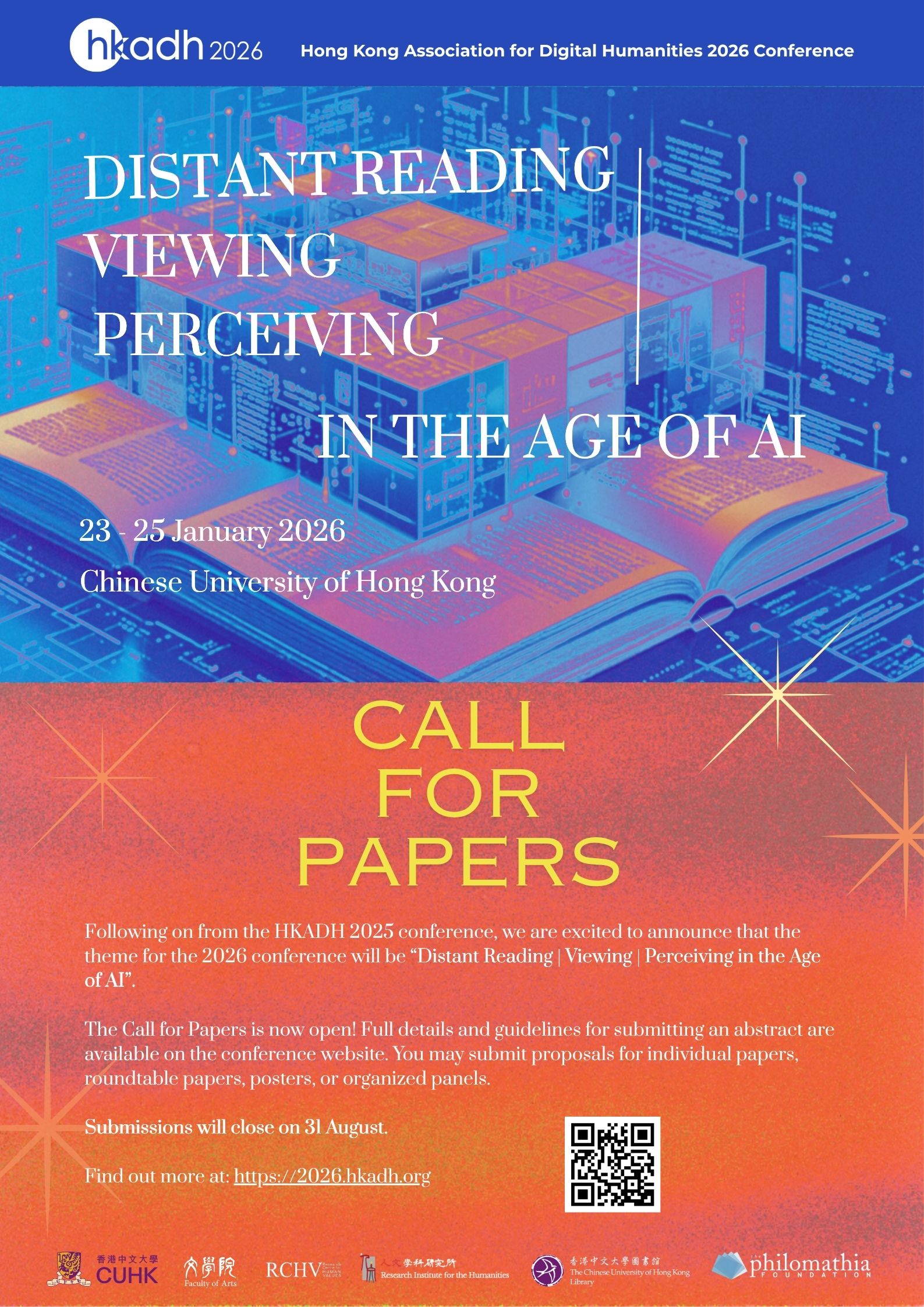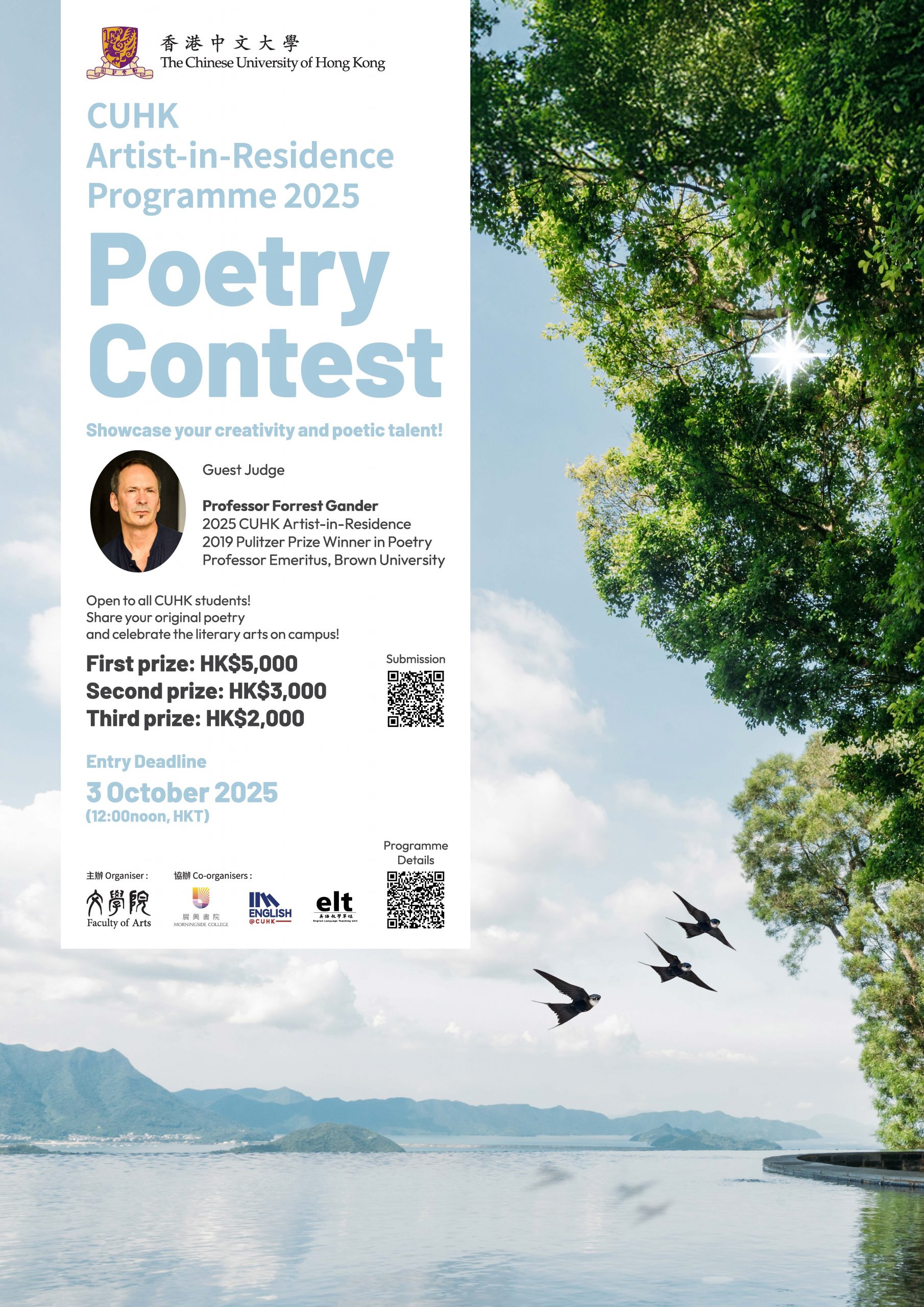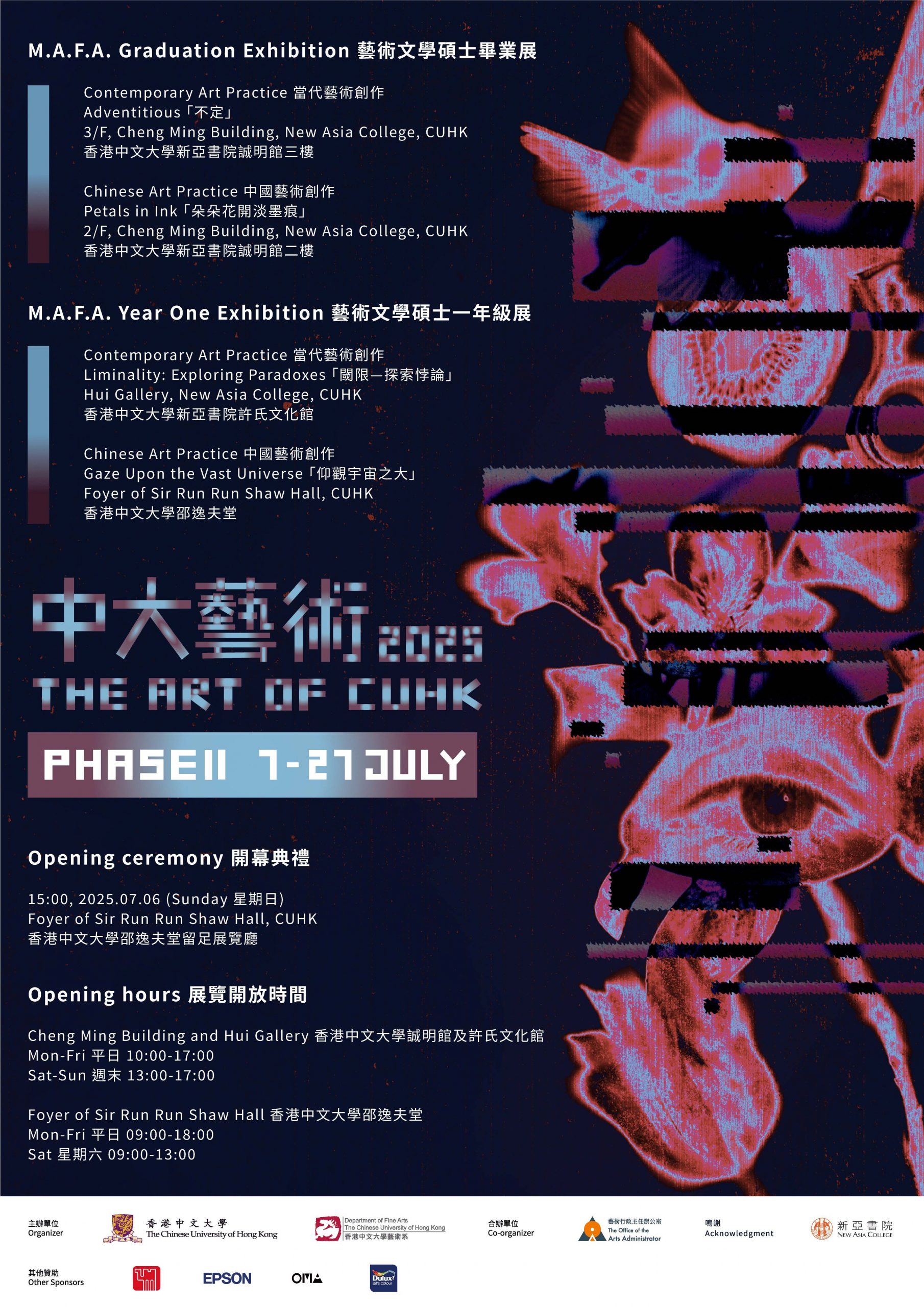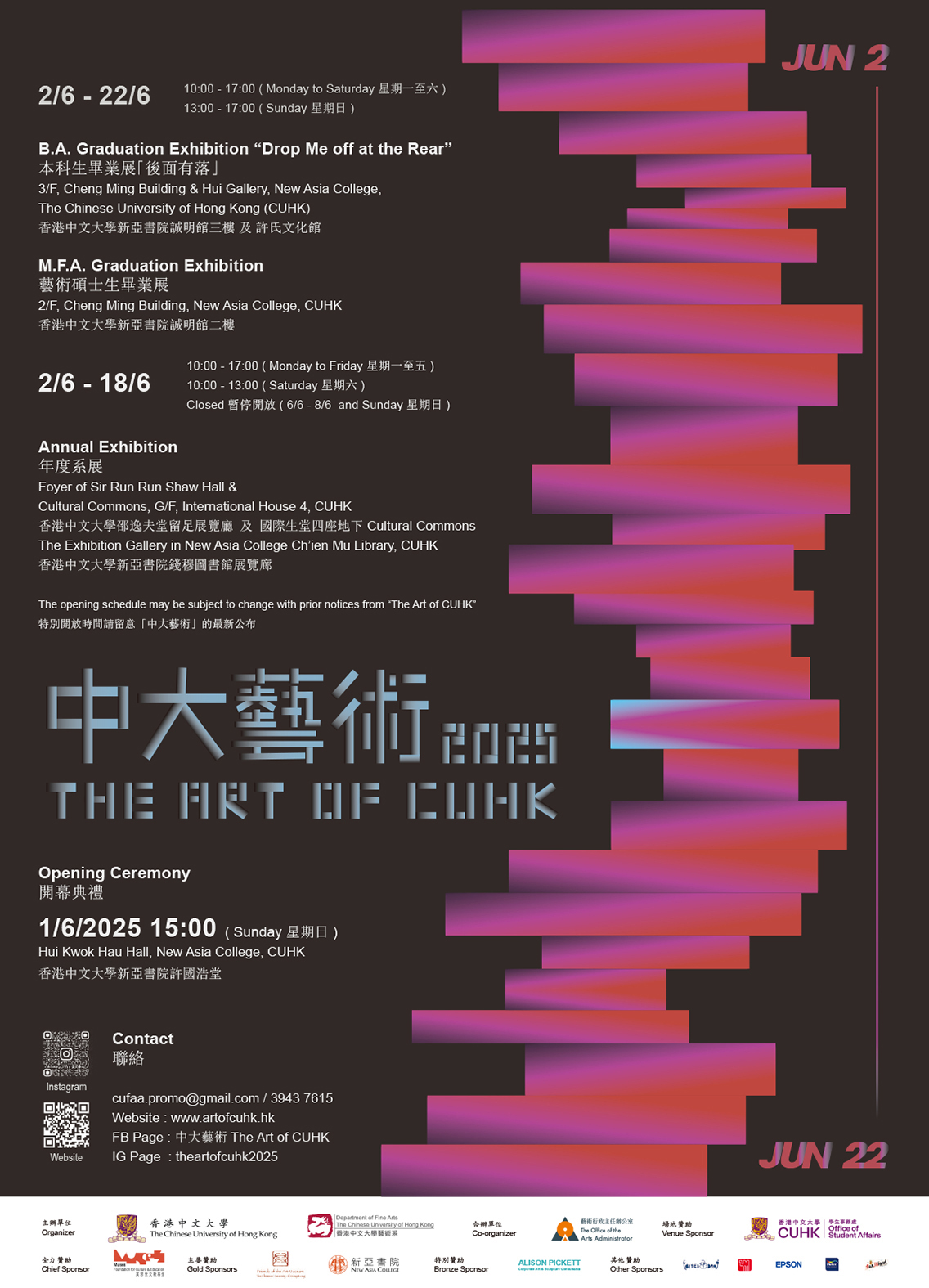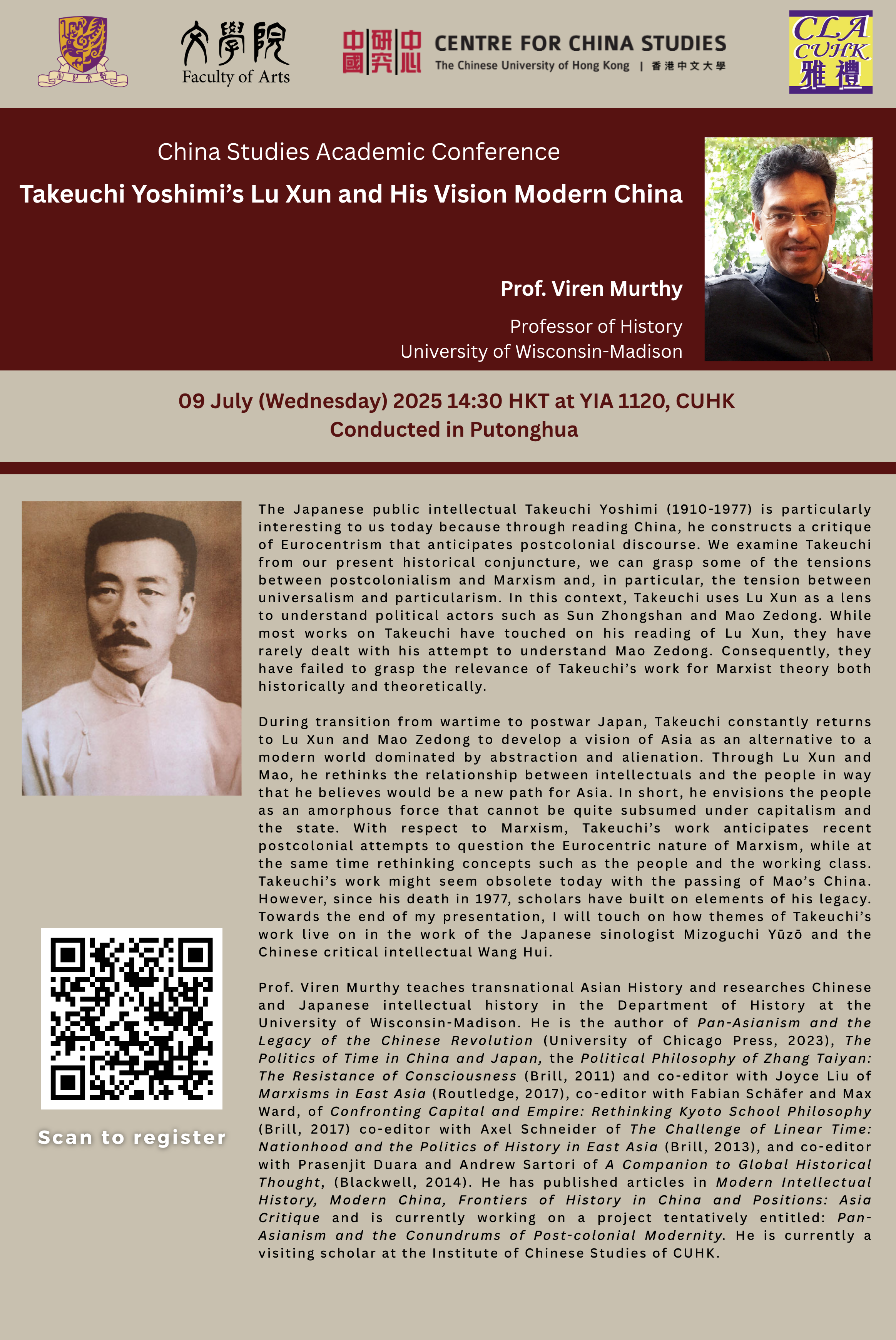
講者
Prof. Viren Murthy
慕唯仁教授為芝加哥大學博士,任教於美國威斯康辛大學麥迪遜校區歷史系,講授有關亞洲的跨國史,研究範圍包括日本,中國與印度思想史。專著為Pan-Asianism and the Legacy of the Chinese Revolution (泛亞洲主義與中國革命的遺產)(University of Chicago Press, 2023), The Politics of Time in China and Japan (中國與日本的有關時間的政治), (Routledge, 2022),《章太炎的政治哲學:意識之抵抗》(The Political Philosophy of Zhang Taiyan: The Resistance of Consciousness. Brill,2011),中文版即上海華東師範大學出版社出版。編著包括《東亞馬克思主義》(與劉紀惠合編。Marxisms in East Asia. Routledge, 2017),《對抗資本與帝國:再思京都哲學學派》(與Fabian Schäfer、Max Ward合編。Confronting Capital and Empire: Rethinking Kyoto School Philosophy. Brill, 2017),《線性時間觀的挑戰:東亞的國家屬性與歷史政治》(與Axel Schneider合編。The Challenge of Linear Time: Nationhood and the Politics of History in East Asia. Brill, 2013),以及《全球歷史思考指南》(與杜贊奇、Andrew Sartori合編。A Companion to Global Historical Thought. Blackwell, 2014)。並在Modern Intellectual History、Modern China、Frontiers of History in China、Positions: Asia Critique等期刊上發表論文多篇。目前的研究內容包括專著《泛亞洲主義與後殖民現代性難題》等,為北京大學博古睿學者。他現在是中文大學中國文化研究所訪問學人。
活動概覽
The Japanese public intellectual Takeuchi Yoshimi (1910-1977) is particularly interesting to us today because through reading China, he constructs a critique of Eurocentrism that anticipates postcolonial discourse. We examine Takeuchi from our present historical conjuncture, we can grasp some of the tensions between postcolonialism and Marxism and, in particular, the tension between universalism and particularism. In this context, Takeuchi uses Lu Xun as a lens to understand political actors such as Sun Zhongshan and Mao Zedong. While most works on Takeuchi have touched on his reading of Lu Xun, they have rarely dealt with his attempt to understand Mao Zedong. Consequently, they have failed to grasp the relevance of Takeuchi’s work for Marxist theory both historically and theoretically.
During transition from wartime to postwar Japan, Takeuchi constantly returns to Lu Xun and Mao Zedong to develop a vision of Asia as an alternative to a modern world dominated by abstraction and alienation. Through Lu Xun and Mao, he rethinks the relationship between intellectuals and the people in way that he believes would be a new path for Asia. In short, he envisions the people as an amorphous force that cannot be quite subsumed under capitalism and the state. With respect to Marxism, Takeuchi’s work anticipates recent postcolonial attempts to question the Eurocentric nature of Marxism, while at the same time rethinking concepts such as the people and the working class. Takeuchi’s work might seem obsolete today with the passing of Mao’s China. However, since his death in 1977, scholars have built on elements of his legacy. Towards the end of my presentation, I will touch on how themes of Takeuchi’s work live on in the work of the Japanese sinologist Mizoguchi Yūzō and the Chinese critical intellectual Wang Hui.
(請參閱英文版)
查詢
Centre for China Studies:
ccs@cuhk.edu.hk/ 3943-4392

